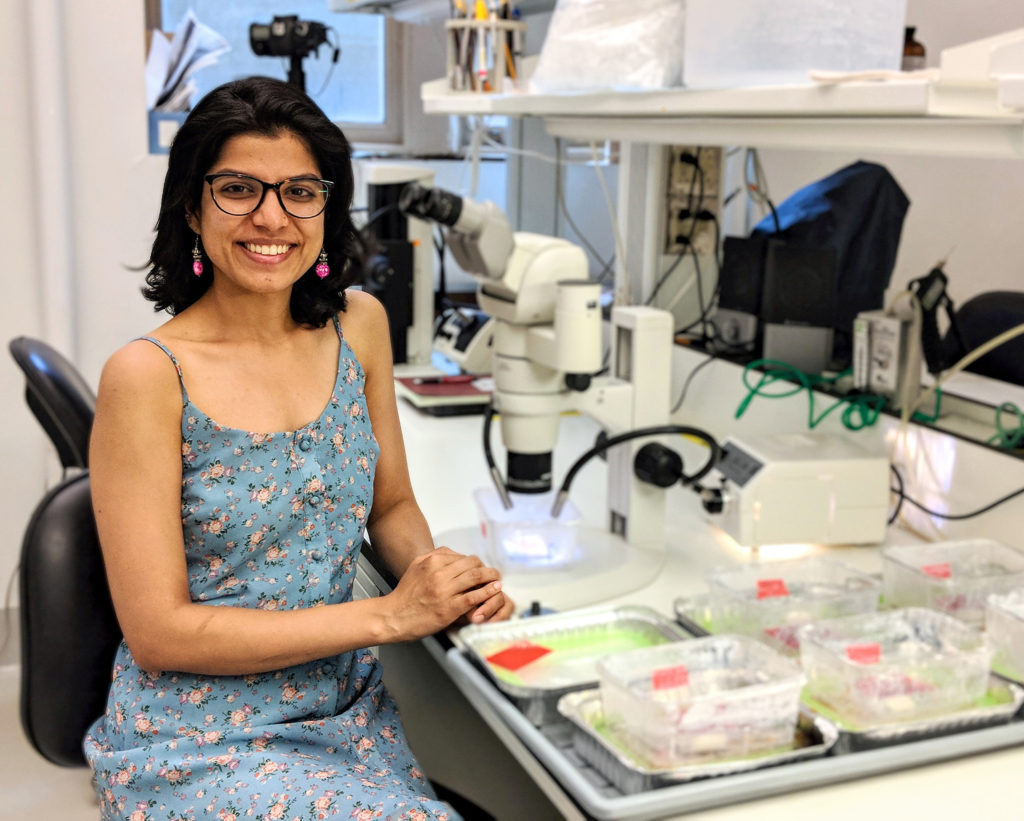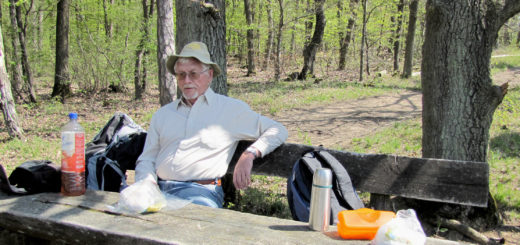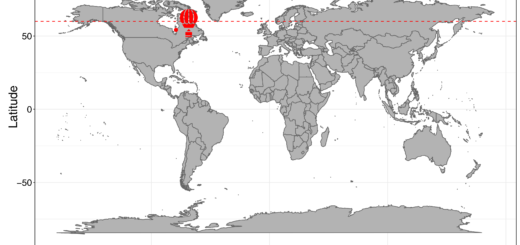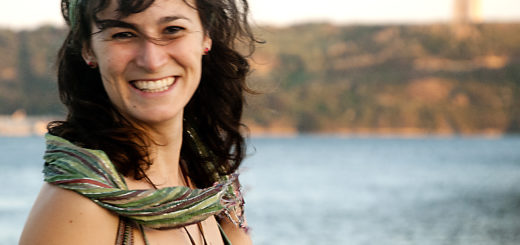Doing an ant PhD: Rohini Singh

© Rohini Singh
Rohini Singh was born in India where she did all her education. She graduated with a bachelor’s degree in Biotechnology, after which she moved to Tata Institute of Fundamental Research (TIFR) in Mumbai to do a masters by research. For her master’s thesis she studied the genetic basis of complex trait variation in budding yeasts. That was the time, she became interested in research. She realized she was more interested in organismal-level questions, especially adaptation and how individuals interact with each other. She wanted to pursue a PhD in an ecology and evolution department and applied to several PhD programs. In 2014, she moved to the United States and started her PhD in the lab of Tim Linksvayer at the University of Pennsylvania. In this interview, we talk about her PhD thesis and her work in the Linksvayer lab.
An Interview compiled by Patrick Krapf
MNB: Thank you so much, Rohini, for giving an interview.
RS: Sure. Thank you for contacting me.
MNB: Let’s start easy. What is the topic of your PhD thesis?
RS: I am studying social effects of microbes, specifically asking how presence or absence of certain microbes and the microbiome community affect social interactions in the pharaoh ant, Monomorium pharaonis. I work with Wolbachia, which is a group of bacteria very widely found in insects. Some colonies of pharaoh ants in our lab are naturally infected and some are naturally uninfected with Wolbachia, and I am comparing those two groups to see if there are colony-level fitness differences.
MNB: Oh, cool. And in which year of your PhD studies are you now?
RS: I am finishing my fourth year and will start my fifth year in fall 2018.
MNB: And why ants?
RS: I heard a talk from Bert Hölldobler in India right before I started writing my applications for PhD programs. His talk was about ants as superorganisms. This was the first time I heard about ants as a model system for any kind of biological investigation, and I thought: “Oh wow, this is so cool.” I started reading about ant ecology and ant biology, and I got more and more interested in the topic. I applied to different programs focusing on ants, and I ended up in Tim’s lab for my PhD. I think ants are a very interesting system to work with, and I like the sort of questions one can ask in this system.
MNB: You have a genetic and molecular biology background but ended up in an ecology and evolution PhD. Was the transition difficult? And does your molecular background help you in your PhD now?
RS: The change was difficult because there were many concepts that I knew only superficially or there were some topics I had never heard about before because many of the courses in the bachelor or master programs were not overlapping. An evolutionary biologist has a macroscopic view about how things are happening, while a molecular biologist starts with a microscopic view and expands from this. I had to adjust a lot and did a lot of reading. Right now, I feel I am somewhere in between. I am not entirely an evolutionary biologist, and I am not entirely a molecular biologist.
MNB: And how do you feel about field work?
RS: Oh, I like it. The several times I was in the field to collect ants, I really enjoyed it as I think it is a great teamwork. It is really strenuous because you work for an entire day. You start at 7 am in the morning and stop only when the sun sets. Depending on the success, we would go back to the field for a few more days. However, we don’t have to go outside to collect ants as often, because pharaoh ants can be kept in the lab for generations. They are very easy to breed and maintain. So, unless we do a cross-species experiment, we don’t have to go outside to collect them very frequently.
MNB: So you can identify ants using a key?
RS: I can identify a few ant species, but I wish I had done the Ant Course to identify multiple species. I can identify the species I am working with, for example, Monomorium, or ants I regularly encounter, for example, carpenter ants or some kinds of Ponera ants, but beyond that, I probably can identify them on the genus level but not on the species level.
MNB: But you enjoy also working in the wet lab?
RS: Yes, it’s been great. I think I’ve been doing that all my research life now. I like it because it gives me the freedom of when I want to start and finish my work. Also, I feel like that in the lab a lot of things are controlled, so it gives me a better assessment of my experiment.

For my experiment, I assess colony fitness by censusing various developmental stages of M. pharaonis using a compound microscope and clicker. © Rohini Singh
MNB: Have you been involved in any of the -omics approaches, and what was your experience?
RS: Not yet, but I am making a shift to transcriptomics for my future research. I am interested in seeing how microbes affect host genome expression to broadly understand the physiological processes affected by these bacteria.
MNB: Slightly different topic now. Did you acquire your statistics knowledge in university courses, from your supervisor, or on your own?
RS: I think it is a mix of all. University course was sort of helpful because it was a basic introduction to statistics. But I definitely learned a lot by talking to my advisor, lab mates, and also fellow students.
MNB: And what is the ideal frequency of meeting your supervisor for discussing your research from your point of view: daily, weekly, monthly?
RS: I try to meet with Tim weekly or biweekly, but that depends on our schedules. I definitely benefit by talking to him. When I start a new experiment, I appreciate his input, but when I am in the middle of an experiment or analysing my data, I meet with him less frequently. He tries to make time when I need it, which is really nice.
MNB: If you have a great idea, how do you find out if it’s really great: sitting down and thinking, discussing with your supervisor, discussing with colleagues from the group, discussing with someone not into science?
RS: Uh, okay. Well, I can tell you what I have done so far. I started out with a set of experiments, and there were a few things I wanted to follow up on. Once I had something interesting, I talked to my lab mates and my advisor: “Hey, this is what I have at this point, and I’ve done this and that. It seems like an interesting thing I want to follow up. Let’s think about how to do that.” Obviously, at this point, I had an idea of how the experiment should look like and what the predicted outcomes could be. Before beginning a new experiment, I will work out an experiment plan, either on paper or on Google Docs, sit down with my advisor and labmates for that, and work through each and every step of it, no matter how big or small it is …
MNB: And how many papers do you read in an average week?
RS: Well, I try to read one per day, just to stay consistent. But sometimes, my experiments last a complete day, so in these weeks, I read less, and in weeks when I am not doing any experiments, I read a lot more.
MNB: In an ideal world, is the working group you belong to small or large?
RS: I actually like the number that we have in the lab. Currently, we are three PhD students, two post-doctoral fellows, and eight undergraduates. We are working on very different projects but working towards a common and a broad scientific goal. We all share some personal and professional comfort, we are a tight group, and we can discuss a lot about our work with everyone in lab.
MNB: And ideally, is your university close to your fieldwork site or in an urban area?
RS: Ideally close, but here in Philadelphia, we have to travel a bit, but it’s not a long trip. There are forest areas outside Philadelphia, and we have to drive there for two or three hours until we reach good areas for collection.
MNB: I guess you have attended conferences. Have you profited more from conferences with narrower or with broader scope?
RS: I’ve actually done both. I feel there are advantages to attending conferences of either type. For example, if I go to a conference with a broader scope, I can better understand the broader impacts and applicability of my questions and results. However, a conference with specific scope is helpful because there are a lot of technicalities only people in the field will understand such as experimental design or interpretation of results. I think I have profited more from smaller to mid-sized conferences.
MNB: Tying into this, what is most relevant to you at a conference: attending talks, giving a talk, meeting senior scientists, meeting other students?
RS: I think a combination of all of that. I feel that giving a talk or presenting a poster helps because it gives me time to discuss my work with people. For example, if they have a graph from my talk in their mind, it becomes easier to discuss my work. I definitely enjoy talking to grad students and senior scientists. Grad students are often doing a lot of work, and if there is a protocol I am interested in, it helps to talk to them about it. They also give great feedback on the talk. With senior scientists, I have benefited more by seeking their input on my experiments or my interpretation of the results. I’ve definitely had some interesting ideas come out of these discussions that helped me incorporate new sets of experiments or interpret my results in a new light.
MNB: Slightly different topic again. Did you ever participate in a science slam and if so, what was your experience?
RS: Not a science slam, but science outreach in general. I really enjoy it. I actually started as a volunteer, helping others ran workshops or programs. Slowly, I moved to create and lead my own set of workshops. Also, our department at Pennsylvania University has a dedicated day for young high school students to visit labs in our department, which gives all of us a possibility to design and discuss experiments with young students. I think that is really important.
MNB: If you would get 100,000 Dollar to spend on your research project, what would you do with it?
RS: Ohh, that is a lot of money (laughing). I definitely would spend it on my own project and research ideas with genomic aspects, so probably that. But I also would like to develop an undergraduate or high school lab, in addition to my research goals. I think that is how I would end up spending that money. Part on my research, part on the education for high school or undergraduate students.
MNB: This is a really nice idea.
MNB: In your spare time, what helps you best to relax from work?
RS: I try my best to work on a schedule. Probably have a 7 to 8 hours long day, try not to work on weekends, but that does not always happen, primarily because of the nature of my work, and sometimes because I travel to India. I take huge chunks of breaks in between and I try to make up for that by working on the weekends sometimes. I try to go to the gym frequently, and I think that relaxes me a whole lot. In our department, we play games together. We all try to play softball or frisbee after work and have a nice get together. Philadelphia is a nice city, and one can have a nice evening out, but if I have had a long week, I enjoy staying at home.

Monomorium pharaonis colonies are kept in lab in fluon-coated boxes inside nests made from plexi glass. These fluon-coated boxes are kept in oil moats to ensure that no ants escape and make their way of their designated space and environmental growth chambers. The Linksvayer lab houses ~150 such colonies which have to be fed twice each week. In this picture, I am scanning through colonies in the lab to assess their growth and food and water status, ahead of my planned experiment. © Rohini Singh
MNB: And how do you celebrate successes like getting a paper accepted, a proposal granted, or the like?
RS: We actually go out together as a lab, for example, when a paper gets accepted. Celebrating with the lab and friends, because people in the scientific community understand what it means to get a paper published or a grant accepted.
MNB: Such a nice idea.
MNB: What is your personal trick to get over periods of low(er) motivation?
RS: Ohh, okay. I am much better now at getting over such a period than I was at the beginning of my PhD. Now, I take a break when I hit such a period; sometimes that means coming to the lab but not working or sometimes it means not coming to the lab at all. Initially during this break period I try not to think about work and take a step back to see what I can do to improve or change about my work. For example, when an experiment is not working, I try to understand what and how I can improve it. I realized having highs and lows is a part of a PhD journey. The work environment is really comfortable here in our lab. So if I need to talk to someone about my work related stress, I can talk to my supervisor and my lab mates. If now things don’t work, it doesn’t bother me as much as it used to, because I know how to get inputs to change some things and keep a steady and calm mental state through this period.
MNB: And what do you do to get over frustration about what you consider as unfair criticism by a reviewer?
RS: Okay, so sometimes I think that I can argue in my favour, and I try to put that argument for and discuss my results with that reviewer. But I also understand that people are entitled to have different opinions that may or may not align with what my opinion is. Talking to the reviewer is helpful. I try to discuss with my lab mates and my supervisor about the criticism itself to get a broader perspective of what I can learn from that, for example if it was stemming from a certain aspect of my research which was not very clear. Discussing really helps to get a broader perspective on that criticism.
MNB: What is the one thing you would do differently when starting your PhD thesis again?
RS: Oh, if I had to start over, I would definitely be more critical about starting something new. For example, I would suggest taking sufficienttime to review before starting a new experiment. It is not possible to predict everything that could fail but if given a good amount of reading and a good amount of discussion, I could have avoided some problems I encountered during the course of my experiments. I would just be way more critical of my study design.
MNB: Would you like to stay in science?
RS: I would like to. I don’t know if I want to have a lab per se. But I am inclined to science teaching and science education and getting the research out from labs to students and teachers to get them more interested and more involved at high school and undergraduate level.
MNB: If you will be supervising PhD students yourself, what will be the most important thing you will expect from your students?
RS: I will expect critical thinking. By which I mean, they need to be creative, and should check and contradict some of my ideas as well. For example, if I suggest something which might not work best or they know a better approach or if something could be done in addition to get a better design or better output. So, I would like someone who can build on that and is not just going with the given ideas. They should become independent.
MNB: Tying into this, what will be the most important thing you will want to take care of in supervising?
RS: I would definitely like to have a better structure for mental health support for the students and for people working in science. Everybody goes through some ups and downs in research, and everybody sometime hits really low points and tries to get out of it. So, creating an environment where people can find help is really important, I think.

© Rohini Singh
MNB: Original article or review article?
RS: Review article.
MNB: Reading or writing?
RS: Reading.
MNB: Writing or reviewing?
RS: Reviewing.
MNB: Reviewing or considering criticism by someone else?
RS: Reviewing.
MNB: The first or last 5% of time you spend with writing a manuscript?
RS: The last 5%.
MNB: Informative or sexy paper title?
RS: Sexy paper title.
MNB: Table or figure?
RS: Figure.
MNB: Web of Science or Google Scholar?
RS: Google Scholar.
MNB: Journals financed by the author (open access) or the reader (subscription)?
RS: Well, I am not sure, if I can answer that since I have never bought a subscription. So far, I’ve never had a problem in not accessing a manuscript. But I think most of the papers that I read are subscription based. I personally would like to publish in open access.
MNB: Windows, OS, or Linux?
RS: Windows.
MNB: Command-line or graphical-user interface?
RS: Graphical-user interface.
MNB: Mouse or touchpad?
RS: Mouse.
MNB: Facebook or Twitter?
RS: Twitter.
MNB: Bus or bike?
RS: Bike.
MNB: Breakfast or dinner?
RS: Dinner.
MNB: Sun or rain?
RS: Sun.
MNB: Diploid or haploid?
RS: Diploid.
MNB: Sting or acid?
RS: Sting.
MNB: Social parasite or host?
RS: Host.
MNB: Your favourite ant paper?
RS: The recent paper on Ophycordyceps fungi by the labs of Corrie Moreau and David Hughes.
MNB: Your favourite ant?
RS: The weaver ant.
MNB: … and if in another life you were an ant, what ant would that be?
RS: Again, weaver ant.
MNB: Thank you so much for the interview. It was really fun for me.
RS: Thank you so much for reaching out.






Recent Comments